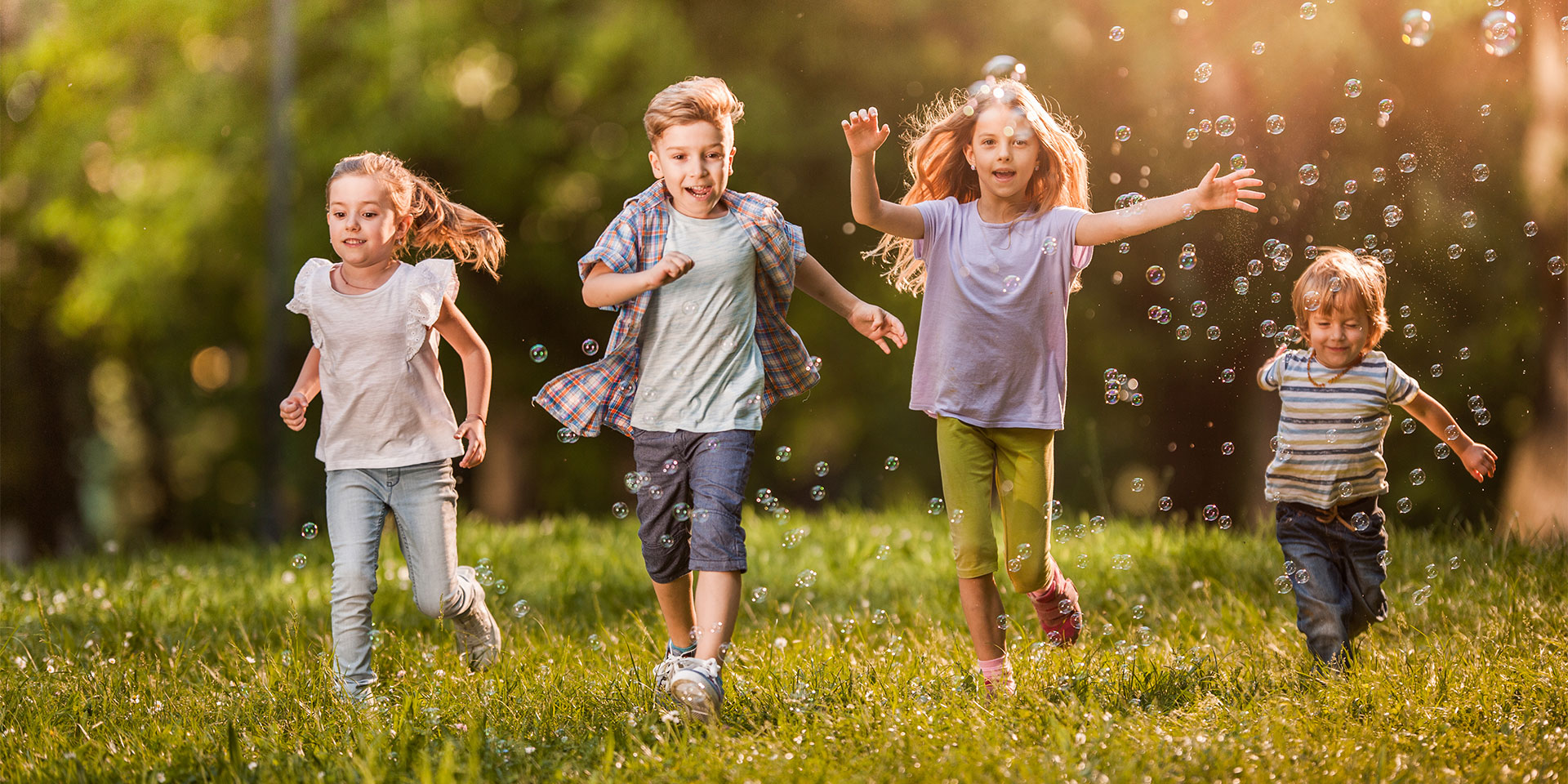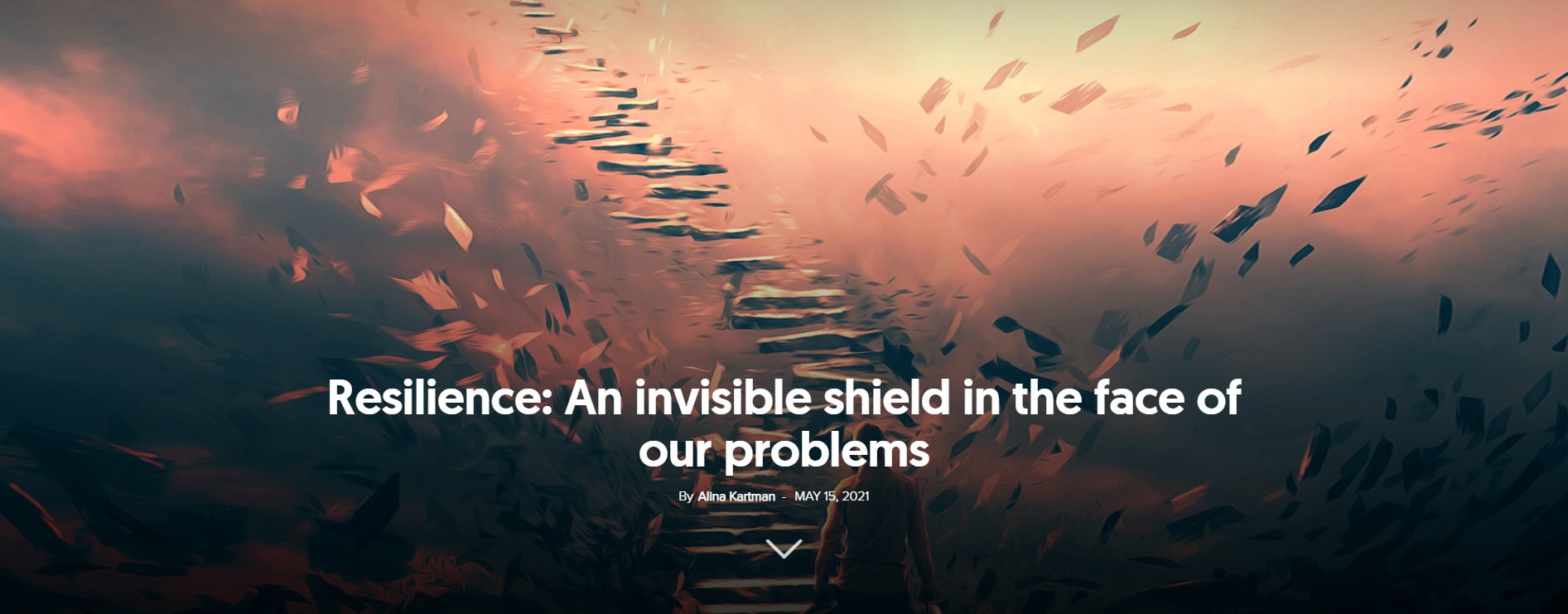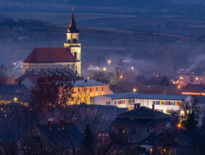Every day, we are surrounded by the resilience of developing characters and it’s almost impossible not to be touched by their beauty and fragility.
We look at the children around us, a bit nostalgically, because we were once like them. They are amazed at the world’s wonders and happy on account of small things. We know, from our own experience, although we choose to forget about this responsibility, that what we are and do as adults influences their future.
She was at the seaside and had celebrated her birthday two days prior
I wanted to test her: “Tell me again. I forgot. How old did you turn?” Pause. She had forgotten. I smiled widely over the phone when I heard her persistent voice: “Daddy, daddy, how old did I turn?” After having her age whispered to her, she replied, proud and amazed by the years that meant almost nothing to her, but which seemed many and important: “I turned three, Andreea!” I knew three years had gone by, I also knew how they went by, perhaps better than herself: loved by everyone, always protected by her parents and her two older brothers, spoiled with toys and strolls. Three years of happy childhood.
What I first noticed about him were his eyes
Big and brown, they seemed like the only living thing in his frail body, confined to a hospital bed. He lay on his back, intubated, with a cannula on his hand, watching. He had an intense look, with knowing eyes, too sad for one so young. I was there with several friends. We had brought gifts for the children in the hospital. I asked a nurse about him. She told me he was almost three years old, even if he seemed younger. He had suffered many operations due to a muscular disease, and was abandoned at birth. I turned to him, smiled lovingly, and showed him a pretty, coloured toy. He had no reaction, no flicker of amazement in his eyes. Nothing. A toy was too insignificant to wipe away his loneliness and suffering, even for a moment. I then thought with pain that in those three years he probably hadn’t even found out what playing was, nor what happiness or love looks like. Three years of unhappy childhood.
“Please, tell me another riddle!”
Since he was little, he liked to know things. He was permanently preoccupied by discoveries, asked a lot of questions, and quickly learned to read. His parents only remember he used to bring his plastic letters to them and ask them what each of them was. He did not need much help. He then got a world map and started to learn countries and flags on his own. All around the home you could find his drawings of flags. School was too easy for him right from the start. Around the third grade he already wanted to know what radicals were. He had heard the word from older boys. He quickly understood what they were and what the formula was and got bored of them too. Although responsible and thorough, almost all his free time and, for sure, most of his thoughts are occupied by football, games, and the junior team he is part of. Twelve years of learning and careless play.
I met her in summer school
A little bit taller than her classmates, thin and shy at first glance. She did not like to talk in front of others, but had such an energy and strength of character that one could read in her eyes. The second day she came to me and whispered: “Miss, I have an idea. What would you think of..?” I implemented her idea and it went very well. Better than I had planned. The third day she was absent. When she returned, I asked her whether she liked school and she honestly said she did, very much. She only skipped the days when she had to look after her younger brothers, because her parents worked the whole day and had no one to leave them with. On the penultimate day she hastily sought me in the school yard, before the start of the classes: “May I go home today, please? I have to stay with my brothers”. Her coming to ask for permission made me emotional. It was clear to me how much she would have wanted to stay and that she did not want us to be mad at her. I watched as she hastily made her way out of the school and knew she had to go through a ravine on her way home—the village dumpster. She came to the year-end event, took courage, and spoke in front of the class about a thing that had made her happy in the previous two weeks. The last time I saw her, she was smiling and was holding the hand of her little brother. Twelve years of learning and overwhelming concerns.
It was winter, almost night time, and it snowed beautifully. I was rushing back home and next to me walked a grandmother holding the hand of her four-year-old granddaughter. She was cheerfully talking about something. I slowed down to listen to them, smiled, and the girl saw me, looked straight at me, and then went on with her story. I entered the flat and turned around for a brief moment. I don’t know why. Perhaps to see them passing by the door. One second later I saw a little foot stepping back, than a red face and a wide smile. She owed me a smile and did not want to go on without offering it to me. For a few split seconds I forgot I was a “grown-up”. I received the smile, and a lesson.
“Being a child is a serious business.” This is the beginning of the chorus of a song that keeps coming back to me whenever I look into a child’s eyes. I look with amazement at the way people around me treat childhood lightly, and I don’t mean child-lightly, but adult-lightly. Adults believe they can say anything because “the little ones do not understand anyway.” They believe they can behave as they please because “children forget anyhow.” They think that only they are responsible for their own children. Children, however, teach me that, often, they are just a reflection of what we—all of us in society—are, whether we like it or not, and that our effort to love and understand them is never in vain.
They have also taught me that we can live without satisfying imaginary needs, and that we can give more of our time and resources. They have taught me that there are no children who belong to nobody, and we only make them belong to nobody when we forget they exist. Above all, they have taught me that there is no greater happiness than to trust and love, and measuring our wisdom in years means nothing if we are still looking for happiness in places we have never been to. Perhaps this is why we are encouraged to be like them.




















